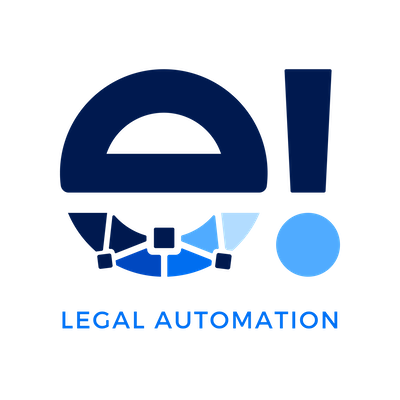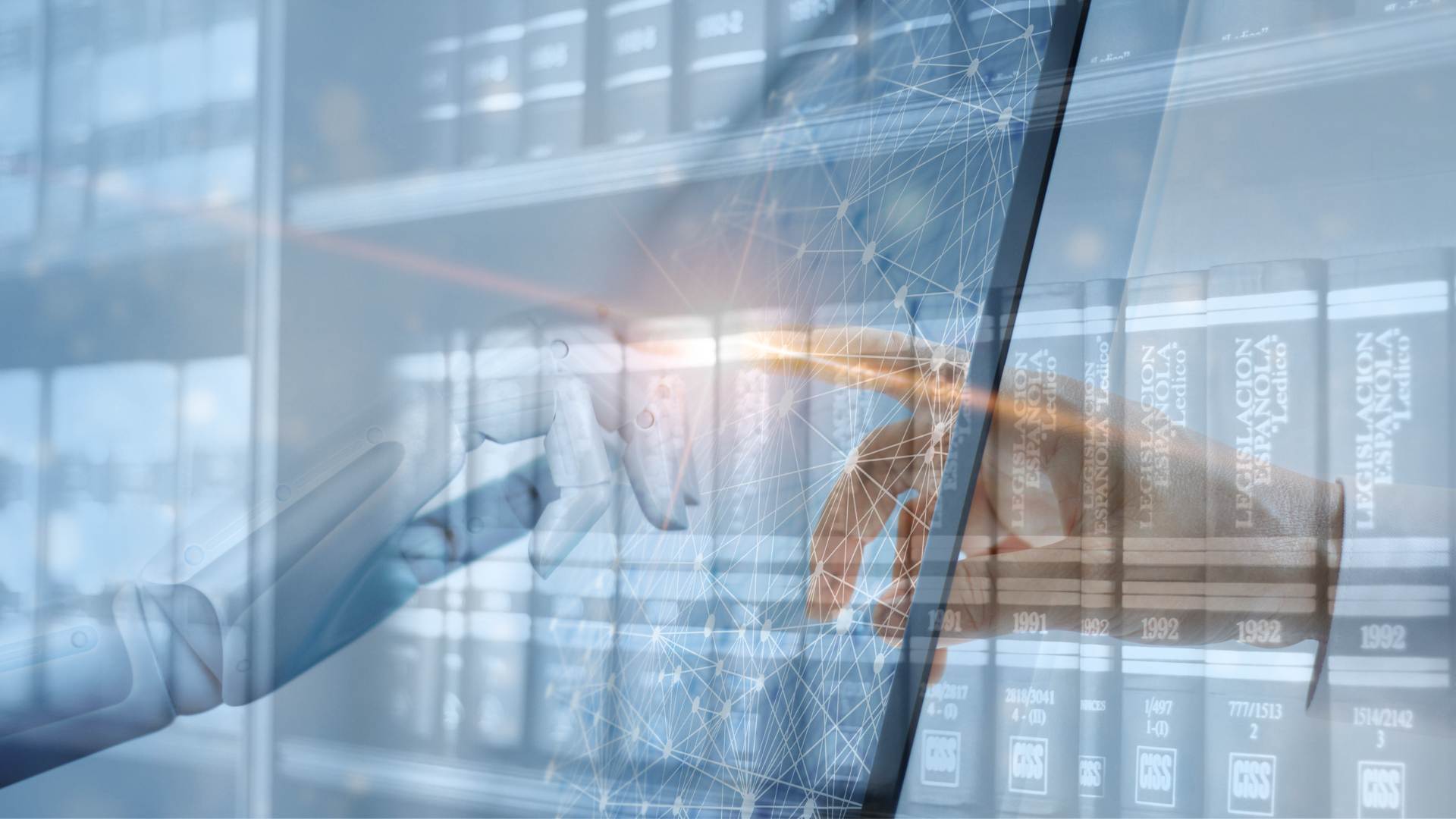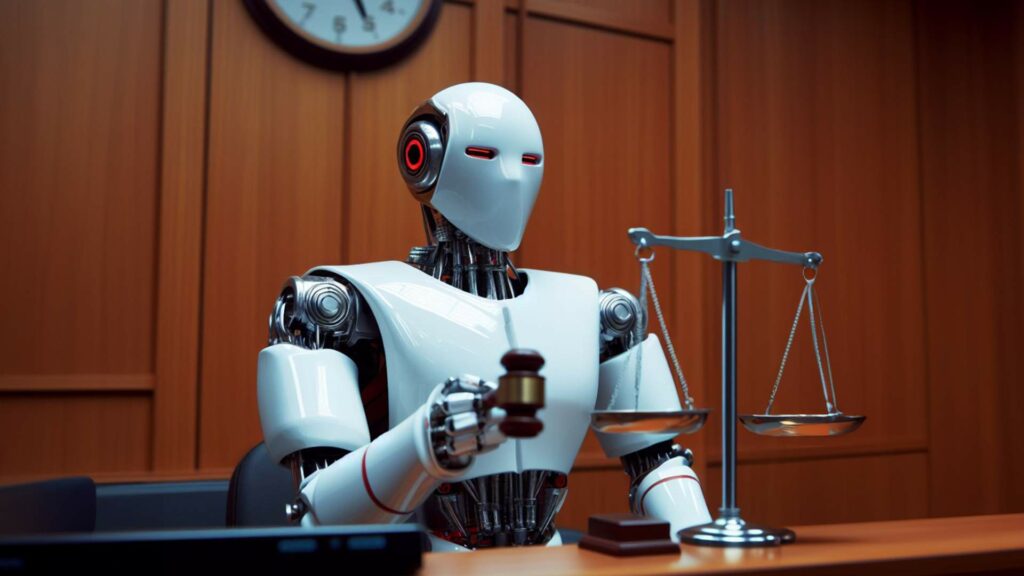For decades, European law firms have functioned in a world dominated by paper. Overflowing cabinets housed client files. Contracts underwent meticulous drafting and redrafting on paper and communication flowed primarily through fax and physical mail. This traditional approach, while established, was inherently inefficient. The introduction of automation is revolutionizing this landscape. Legal professionals are embracing Legaltech, a broad term encompassing technology solutions designed specifically for the legal industry. One key component of Legaltech is the rise of No-Code Platforms. These user-friendly tools empower lawyers to build custom applications without needing coding expertise.
Automation is streamlining workflows in several ways. Repetitive tasks like due diligence document review can now be handled by AI-powered software, freeing up lawyers’ time for more strategic work. Legal research, once a time-consuming manual process, can be significantly accelerated with AI tools that identify relevant case law and legal precedents. Moreover, Automation is also transforming client intake and document management, allowing for faster communication and improved accessibility for clients.
This shift from paper-based to automated workflows promises to enhance efficiency, reduce errors, and ultimately lead to better client service. However, the integration of technology also presents challenges, such as ensuring data security and navigating the ethical implications of AI in legal practice.
Embracing Legaltech: How No-Code Platforms are Streamlining Workflows
The legal industry is embracing a new wave of technology, no-code platforms. These innovative tools empower legal professionals, regardless of coding experience, to automate tasks and build applications that streamline workflows. This translates to significant advantages for law firms:
- Enhanced Efficiency: Repetitive tasks like document generation, contract review, and due diligence can be automated, freeing up valuable time for lawyers to focus on complex legal matters and client interaction.
- Improved Accuracy: Manual processes are prone to errors. No-code platforms can ensure consistency and eliminate human error in tasks like data entry and legal document creation.
- Faster Turnaround Times: Streamlined workflows lead to faster completion of tasks. This allows firms to meet deadlines more efficiently and deliver exceptional client service.
- Boosted Innovation: Lawyers with domain expertise can leverage no-code platforms to create custom solutions that address specific needs within the firm.
Citizen developers, empowered by no-code automation toolboxes, can become valuable assets for innovation. By streamlining workflows and boosting efficiency, these tools are having a positive impact on law firm performance and client satisfaction.

AI Integration: The Future of Legal Services
Artificial intelligence (AI) is rapidly transforming the legal industry, bringing unprecedented power and potential. Here’s a glimpse into the current and future landscape:
Current Applications:
- Legal Research & Document Review: AI can analyze vast amounts of legal data, identify relevant precedents, and streamline due diligence processes.
- Contract Management & Drafting: AI automates contract review, highlighting potential risks and suggesting revisions, freeing lawyers for strategic negotiation.
- E-discovery & Predictive Analytics: AI helps sift through mountains of electronic documents during discovery, saving time and cost. Additionally, AI can analyze legal trends to predict case outcomes and guide litigation strategies.
Future Potential:
- AI-powered Legal Assistants: Virtual assistants with legal expertise can provide basic legal guidance and automate administrative tasks, increasing access to justice for a broader audience.
- Automated Legal Document Generation: AI could draft customized legal documents based on user input, further enhancing efficiency.
Opportunities & Threats of integrating AI into legal operations
AI offers immense potential for efficiency, cost reduction, and democratizing legal services. However, concerns remain regarding bias in algorithms, the displacement of legal jobs, and the ethical implications of AI decision-making in the legal realm.
While AI won’t replace lawyers entirely, it will undoubtedly reshape the legal profession. The key lies in harnessing AI’s power for good, ensuring ethical development, and focusing lawyers on the irreplaceable human aspects of legal practice, such as judgment, empathy, and strategic thinking.

Beyond Efficiency: The Ethical Considerations of No-Code and AI in European Law
While no-code platforms and AI offer a wave of efficiency for European law firms, ethical considerations lurk beneath the surface. These powerful tools raise critical questions that demand attention:
Opportunities for Innovation, Concerns for Bias:
- Transparency and Explainability: European regulations like GDPR emphasize data transparency. Can no-code platforms and AI clearly explain their decision-making processes to avoid bias against certain demographics or legal arguments?
- Algorithmic Bias: AI algorithms trained on biased datasets can perpetuate discrimination. How can European legal frameworks ensure fairness in AI-powered legal services?
- Accountability and Liability: Who is liable for errors made by AI-assisted legal tools? Should developers, law firms, or both be held accountable?
The Human Element and the Future of Law:
- Access to Justice: AI-powered legal assistants could democratize access to legal services in Europe. However, will these tools exacerbate the digital divide and exclude those lacking technological resources?
- The Lawyer’s Role: While AI automates tasks, lawyers remain vital for complex legal issues and human connection. How can European legal professions adapt to this evolving landscape?
There are no definitive answers to the ethical questions surrounding no-code and AI in European law. However, we can explore some potential solutions and ongoing discussions.
European regulations like GDPR emphasize data transparency. Consequently, regulatory bodies are pushing for the development of “explainable AI” that can clearly articulate its decision-making process. This, in turn, can help identify and mitigate bias.
The European Commission advocates for diverse datasets and human oversight in AI development to minimize bias. Additionally, legal frameworks are being explored to ensure fairness in AI-powered legal services.
There are ongoing debates regarding who is liable for errors made by AI-assisted legal tools. Consequently, potential solutions involve shared liability between developers and law firms, depending on the specific circumstances and the level of human oversight involved.
While there exist concerns over AI-powered legal assistants and the possibility of them exacerbating the digital divide. Hence, initiatives promoting digital literacy and ensuring affordable access to technology are crucial to ensure equal access to justice.
The European legal profession is adapting by emphasizing the importance of legaltech proficiency alongside traditional legal expertise. Law schools are incorporating legaltech education, and professional development programs are helping lawyers stay current with technological advancements.
The European legal landscape is poised for a transformation driven by no-code and AI. By embracing these advancements while addressing ethical concerns, Europe can ensure a future where legal technology empowers both lawyers and the people they serve.
The Human Factor: Lawyers Reimagined in the Age of Legaltech
The legal landscape is undergoing a metamorphosis driven by legal technology (Legaltech). While automation streamlines workflows, the human touch remains paramount. Here’s how the role of lawyers is evolving:
From Taskmasters to Strategists: Repetitive tasks like document review are giving way to AI-powered tools. This frees lawyers to focus on higher-level thinking – strategic planning, client relationship management, and complex legal problem-solving.
Tech-Savvy Advisors: Legal professionals are no longer solely reliant on legal expertise. Proficiency in legal technology is becoming increasingly important. Lawyers who can leverage these tools effectively will gain a competitive edge.
Empathy & Communication Remain Key: Technology excels at efficiency, but human connection remains irreplaceable. Lawyers who excel in communication, empathy, and building strong client relationships will be highly sought-after.
Specialization & Collaboration: The legal field will likely see increased specialization as AI handles routine tasks. Additionally, collaboration between lawyers with diverse legaltech expertise will be crucial for navigating complex legal issues.
The legaltech revolution necessitates a shift in perspective. Lawyers are not being replaced, but their roles are evolving. By embracing technology and honing their human-centric skills, lawyers can thrive in the exciting new era of legal practice.

Bridging the Gap: Harmony Between Old and New
The legaltech revolution isn’t about dismantling traditional legal systems. It’s about creating a symphony of efficiency. No-code platforms and AI excel at specific tasks but established legal processes and human expertise remain invaluable. The key lies in seamless integration.
Modern legal practice management software can act as a bridge, allowing law firms to leverage no-code tools within existing workflows. For instance, no-code document automation can integrate with document management systems, streamlining document creation without disrupting established filing procedures.
Traditional law firms that embrace legaltech strategically will find themselves well-positioned. They can achieve optimal efficiency by leveraging technology’s strengths while preserving the irreplaceable human element that fosters trust and strategic thinking. The future of legal practice lies not in a battle between old and new, but in a harmonious blend that delivers exceptional service in a rapidly evolving landscape.






